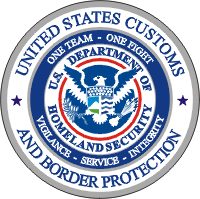CBP Modifies Post-Summary Correction, Periodic Monthly Statement Tests
 CBP Modifies Post-Summary Correction, Periodic Monthly Statement Tests
CBP Modifies Post-Summary Correction, Periodic Monthly Statement Tests
U.S. Customs and Border Protection is expanding the types of entries that may be corrected by filing a post-summary correction and making other changes to its ongoing tests of PSCs and periodic monthly statements. These modifications will be effective as of Jan. 14, 2017.
Post-Summary Corrections. Under the PSC test, importers may use the Automated Broker Interface to file PSC claims to entry summaries filed in the Automated Commercial Environment. Importers and their brokers may also use ABI to file PSCs to those pre-liquidation ACE entry summaries that are accepted by CBP, fully paid, and under CBP control.
CBP is now expanding the type of entries that may be corrected by filing a PSC (which currently include types 01 (consumption – free and dutiable) and 03 (consumption – antidumping/countervailing duty) to include the following.
– 02 (consumption – quota/visa)
– 06 (consumption – foreign-trade zone)
– 07 (consumption – AD/CV duty and quota/visa combination)
– 21 (warehouse)
– 22 (re-warehouse)
– 23 (temporary importation bond)
– 31 (warehouse withdrawal – consumption)
– 32 (warehouse withdrawal – quota)
– 34 (warehouse withdrawal – AD/CV duty)
– 38 (warehouse withdrawal – AD/CV duty and quota/visa combination)
– 51 (Defense Contract Administration Service Region)
– 52 (government – dutiable)
CBP is also modifying this test as follows.
Merchandise Subject to Quota. When filing a PSC for an entry of merchandise subject to quota, the date and time of submission will be considered the date and time of presentation of the merchandise to CBP. If a PSC is filed on an entry with merchandise subject to quota and the quota is full or nearly full at threshold, the PSC filer must (1) follow the entry summary business rules and process document on the CBP website and (2) within 24 hours of making the correction contact CBP Headquarters Quota Branch regardless of whether the correction concerns merchandise subject to quota.
PSC Showing Increase in Liability. If a PSC is filed that increases the importer’s liability for duties, fees, or taxes the importer must deposit those additional duties, fees, and taxes within three business days of submitting the PSC and no additional PSCs can be filed until this is done.
AD/CV Duties. A PSC may now declare that a previously filed entry stating that merchandise covered by that entry was subject to AD and/or CV duties is not, in fact, subject to such duties. For instance, a PSC may declare that a previously filed 03 entry type is corrected to indicate it is a 01 entry type.
In addition, importers may deposit new or additional AD and/or CV duties within three business days of submitting the PSC, although no additional PSCs can be filed until this is done. Previously CBP would reject PSCs declaring that an entry was corrected to indicate it was subject to new or additional AD and/or CV duties if those duties were not deposited at the time the PSC was submitted.
FTA Claims. In June 2011 CBP announced that one of the data elements that may not be modified via a PSC is the NAFTA indicator. CBP is now clarifying that this prohibition applies not only to post-importation NAFTA claims under 19 USC 1520(d) but also to claims made under other free trade agreements covered by 19 USC 1520(d).
Time Limits. In November 2013 CBP published a notice stating that a PSC cannot be filed when any merchandise covered by the original entry has been conditionally released and its right to admission has not been determined. However, CBP states that this restriction was overly broad and prevented importers from filing PSCs because all goods are conditionally released and their admissibility is not legally determined until liquidation. CBP is now announcing that this restriction does not prevent the filing of a PSC within the time periods allowed as long as all other requirements and limitations are met.
Periodic Monthly Statements. The PMS test allows importers to deposit estimated duties, fees, and taxes on a monthly basis. CBP is now announcing that when the importer uses the automated clearing house debit process a PMS will be considered paid when CBP receives confirmation from the Treasury Department that funds are available and transferred to CBP from the financial
institution designated by the importer for payment of the ACH debit authorization (rather than when CBP transmits the debit authorization to the designated financial institution). This change will result in a delay of approximately two working days in the time that CBP uses to consider a PMS as paid.
CBP notes that this modification applies only to importers who participate in the test program and that for all other importers the current regulation (19 CFR 24.25(c)(4)) still applies, meaning that CBP will consider a statement as paid upon acceptance of the ACH debit authorization.
